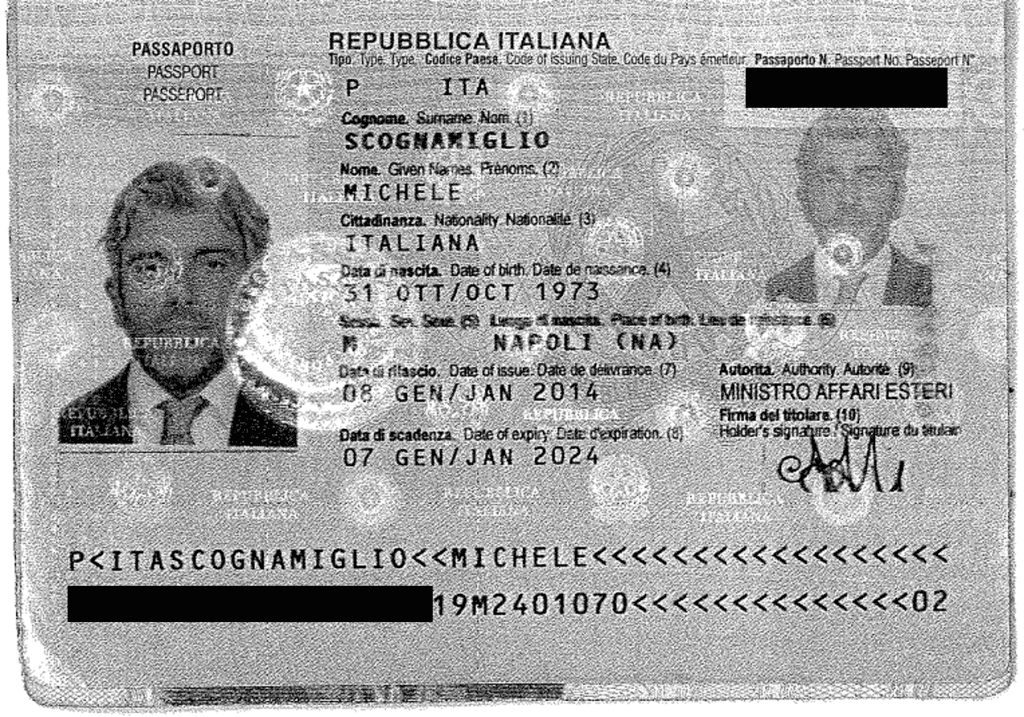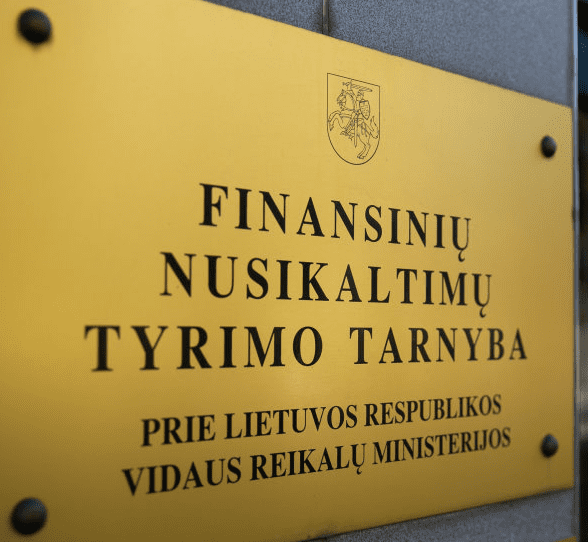The Lithuanian law firm Sulija & Partners represents a Bulgarian and a Portuguese company in disputes with the regulated Lithuanian high-risk payment processor Trustcom Financial UAB, which froze the funds of these companies. This then turned into a criminal investigation conducted by the Lithuanian authorities. They suspect money laundering in the amount of more than €1 million in the context of their clients, they say. The Lithuanian online news site Delfi reports the Lithuanian Financial Crime Investigation Service (FNTT) had fined the company €125,000 for money laundering.

The Italian Principals
CEO of the BL-regulated Lithuanian entity is Marco Spinola (LinkedIn), an Italian living in Latvia, who owns several other companies in the Trustcom Group together with Michele Scognamiglio (LinkedIn). According to their LinkedIn profiles, both are Italian citizens living and working in Latvia. Scognamiglio is connected to the unregulated payment processor Kaliax Pay Ltd, registered in London, through his relative Ciro Scognamiglio. Conto Per Protestati Ltd in the UK also appears in the network as an unregulated payment processor. The Romanian Marius Constantin Stoia controls this entity.

The ownership structure of the Trustcom Group is a bit complex:
- Trustcom Ltd, registered in the UK (Companies House) with Scognamiglio and Spinola as directors, allegedly controls regulated Lithuanian Trustcom Financial UAB.
- This UK entity is controlled by BSD Service SIA in Latvia and Aktrotex Inter Pty Ltd in South Africa, each holding 50% (Companies House). These two companies are also the designated partners in Trustcom Holding LLP in Scotland (Companies House).
- Trustcom Ltd in the UK, in turn, controls Trustcomfinancial Ltd, where Marco Spinola is a director (Companies House).
- Marco Spinola and Michele Scognamiglio are also the registered directors of Trustcom B.V. in the Netherlands and Trustcom D.O.O. in Montenegro
The Trustcom Group consists of companies in different jurisdictions controlled by the owners of BL-regulated Trustcom Financial UAB. However, from a regulatory point of view, the listed companies have to be considered related entities to the BL-regulated entity.
BSD Group and the narrative

We have found and reported on Trustcom Financial and their clients in some major scams over the last two years. Several times we have seen broker scams asking their victims to transfer money to Trustcom Financial accounts via illegal payment processors such as Fuselma or Skylmas. After the reports, we were contacted by Trustcom and informed that they had terminated these customer relationships. A request for additional information went unanswered.
An insider claims that the company is systematically laundering money and defrauding its clients as the statement of the Lithuanian law firm Sulija & Partners suggests. Our findings seem also to be in line with the FNTT investigations.
Michele Scognamiglio is one of the beneficial owners of the Georgian Business Service Distribution LLC (BSD), a group of many companies with offices in London, Milan, Barcelona, and Budapest. Through the personnel arrangement, Trustcom Financial and BSD are under unified management and are thus affiliated companies in the legal-tax sense.
BSD offers to develop tax-optimizing corporate and banking structures for clients through a variety of websites:
Additionally, BDS introduces clients to Trustcom Financial, among them are many high-risk merchants. For their clients, BSD also arranges front men and nominees (“monkeys”) to establish companies and open bank accounts.
The scam works like that: after the company opening, BSD introduces the customers to Trustcom (as it was a separate company). The customer gets the Trustcom anonymous account opened and start to uses the account. When the account starts to have a high balance (also from 20-30k) Trustcom start to ask for documents, information, investigations, and in the meantime, the account is frozen.
Insider report to FinTelegram
An insider told us that BSD introduces also scam-facilitating entities like Fuselma UAB or Skylas UAB to Trustcom Financial. The incoming funds of these clients are not always really clean, according to the insider. Therefore, Trustcom would regularly suspend the merchants’ bank accounts and freeze their funds. The volume of the frozen funds is said to be in the double-digit million euro range. This approach is not an unusual business model for high-risk payment processors to say the least. Payvision or the collapsed iPayTotal were also known for working with this approach.
We would like to learn more. An update with the additional information will follow shortly.
